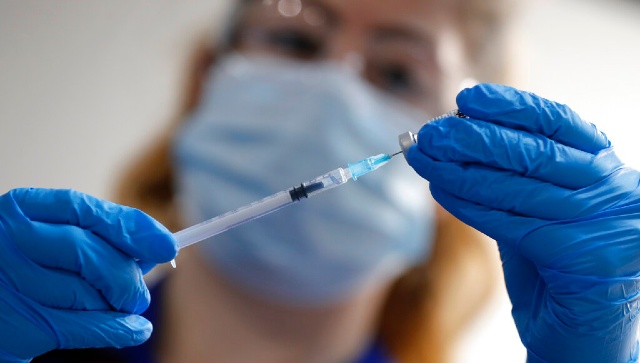More than 80 countries around the world have received COVID-19 vaccines from China as Beijing stole a march on other major powers in collecting diplomatic brownie points by offering a helping hand in the pandemic fight. However, reports now suggest that these countries are facing a surge in cases as the Chinese vaccines may not be that effective in warding off reinfection. So, what are the vaccines that China is using and which countries have been the recipients of Chinese largesse? A look. How did China take early lead in vaccine race? The entire process for the hunt of vaccines against the novel coronavirus was kickstarted by Chinese scientists who shared the genetic sequence of the virus back in January 2020, days after the first cases of COVID-19 were identified in the country and weeks before the disease was designated as a pandemic by WHO. Then, China rolled out an experimental COVID-19 vaccine for its armed forces as early as in June last year, when other vaccines in other countries were still under development. All this is to say that China has moved at great speed with its efforts to get a vaccine out among the public. In December last year, the first vaccine that received the conditional go-ahead for use among the people in China was the one developed by state-owned drugmaker Sinopharm. According to reports and online resources, China has six vaccines at present that have been approved for use among its public while 18 vaccine candidates are undergoing trials in the country. Reports from earlier this month said that China was vaccinating as many as 200 lakh people a day. What are the vaccines China is using, and giving to the world? The two frontline vaccines that China has shared with the world are the ones developed by Sinopharm, called BBIP-CorV, and SinoVac, which has been labelled CoronaVac. Both vaccines are inactivated whole virus vaccines. That is, they use the actual virus but with its genetic material destroyed so as to prevent them from replicating inside the human body. Such vaccines use tried and tested technology – flu and polio vaccines are typically based on this platform – and are known to trigger an immune response. Such vaccines, says Gavi The Vaccine Alliance, are safe for people with compromised immune systems and are “relatively simple to manufacture and relatively stable”, though they may require booster shots to keep up the immunity levels. In fact, four of the six vaccines now approved for use in China are all inactivated whole virus vaccines. How many doses has China shared, and with which countries? According to an online tracker maintained by the consultancy Bridge, China had till June this year provided “more than 350 million doses of vaccines to the international community, including vaccine assistance to over 80 countries and vaccine exports to more than 40 countries”. Reports say that these two vaccines – both have received the World Health Organisation (WHO)’s emergency use nod – are the mainstays of China’s own vaccine campaign and its push for vaccine diplomacy. The Sinopharm vaccines, which showed 79 percent efficacy in preventing symptomatic disease and hospitalisation, “has been the main supplier for vaccine donations from China, having supplied vaccines to a total of 70 countries”, Bridge said. The portal notes that “countries that have purchased vaccines from China appear to prefer Sinovac’s vaccines, while China appears to prefer Sinopharm vaccines for donations”. The Sinopharm vaccine was trialed outside China in the UAE, Egypt, and Morocco, and all three have bought millions of doses of the shot. The SinoVac shot has reported efficacy of 51 percent – just meeting the WHO threshold of minimum 50 percent efficacy for emergency authorisation – against symptomatic COVID-19 but “much higher protection against severe disease and death”. This vaccine staged trials in Indonesia, Brazil, and Chile, which procured “140 million, 100 million, and 62 million doses”, respectively. More than 30 countries have approved the SinoVac shot. What explains speculation about effectiveness of these vaccines? According to a report by The New York Times, the likes of Mongolia, Seychelles and Bahrain – that had relied on Chinese vaccines – are now battling a surge in infections and these shots may not be very effective in reining back the spread of infections, especially where new variants of the novel coronavirus are involved. A clue to the performance of these vaccines may be present in the inactivated whole virus platform itself on which they are based. According to experts, inactivated vaccines may have issues of low durability. Durability essentially concerns the length of time for which a shot is found to be effective. Experts say that inactivated vaccines “may require up to five doses to achieve the optimal level of protection”. Comparing inactivated virus vaccines with the live attenuated ones, which use a living but weakened version of the virus or one that’s very similar, experts say that the latter kind, commonly used for diseases like measles, mumps, and rubella (MMR), generally require “two doses but deliver what is effectively lifetime protection”. Then, why inactivated vaccines, you may ask. That’s because these vaccines are tailored to suit the needs of countries with poor health infrastructure and logistical systems, which would explain the rush among developing countries to obtain the Chinese vaccines. Experts say that inactivated vaccines are easily stored and shipped and normally do not require refrigeration. Compare that with the frontline vaccines in western countries – like the Pfizer-BioNTech and Moderna mRNA jabs and the Oxford-AstraZeneca shot, which is being used in India under the name Covishield – which need end-to-end refrigeration.
China vaccine: The SinoVac shot has reported efficacy of 51%, just meeting the WHO threshold of minimum 50% efficacy for emergency authorisation
Advertisement
End of Article


)

)
)
)
)
)
)
)
)



